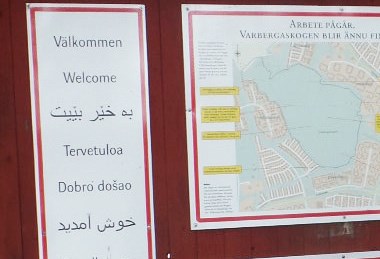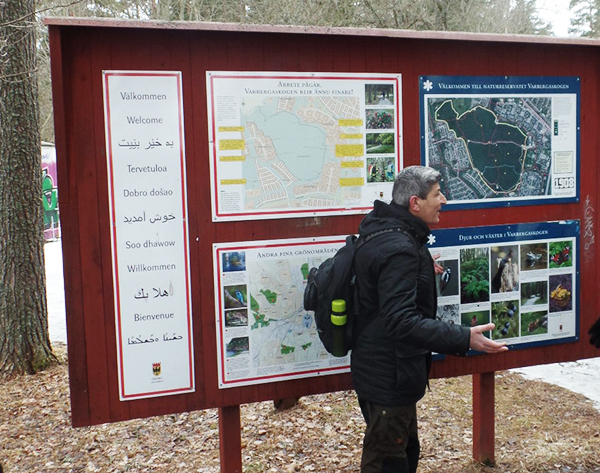Nature guides and immigration

Guided interactions with nature form part of integration programmes aimed at immigrant groups in Nordic societies. Based on data collected from several Swedish Nature-Based Integration (NBI) projects this article examines the rituals nature guides employ on guided walks. It explores how guides enact taskscapes through structured and improvised ritual activity.
The research results are published in the article "Interpreting taskscapes: the rituals of guided Nature-Based (Dis)Integration in Sweden" (Innovation: The European Journal of Social Science
Research, 2020).
It describes the taskscapes that integrate a moral universe encapsulating nature and society; provide meeting sites for groups of diverse backgrounds; and are a potential base for a wider environmental social movement.

Guides ritually control the activities of those they lead through nature. This includes brief ceremonies of welcome and farewell to the ritual space (often a nature reserve) and the opening and closing of various activities. They often employ ritual objects such as items drawn from nature (e.g. sticks) or tools (binoculars) for curating particular experiences of nature, often employing multiple senses and encouraging exploration of the ritual space. These rituals have several purposes: to facilitate learning and enjoyment but also often to integrate participants within the group and, more broadly, within wider Swedish society.
In their role as 'priests' of NBI, guides encourage or discourage particular activities in nature. So for example, on several occasions participants searched for quiz questions that guides had hidden around a forest clearing. Looking high and low, they were pushed into interacting with nature in new ways, whilst bonding with their group members. Simultaneously, the quiz questions usually had a pedagogical element, usually encouraging learning of Swedish nature vocabulary or the rules of Swedish nature use. Guides would open and close activities through gathering people together and often engaging in discussions reflecting over what had been learned. A typical walk would have several stops, each involving different rituals.
Benedict Singleton describes moments of apparent integration and conflict over past, present and future usage of nature. Nature guides are prominent in managing tensions and contradictions around integration, a concept containing inherently coercive elements. Guides thus should be aware that their activities may contribute to societal conflicts as well as conciliation. This is of particular relevance with NBI increasingly framed as a potential solution to the 'problems' of immigration.
Benedict Singleton was a postdoctor at CBM during 2017-2017.
Email adress to Benedict Singleton: benedict.singleton@gu.se
Links:
Link to the article: https://doi.org/10.1080/13511610.2020.1775560